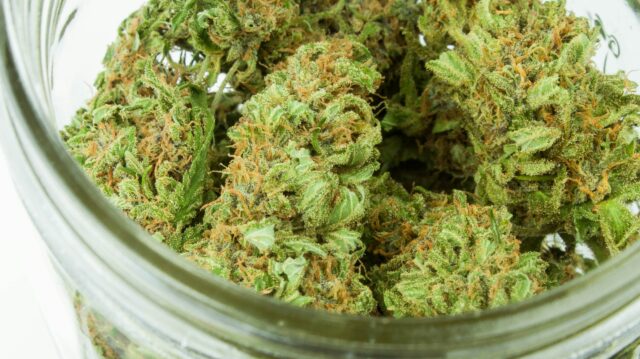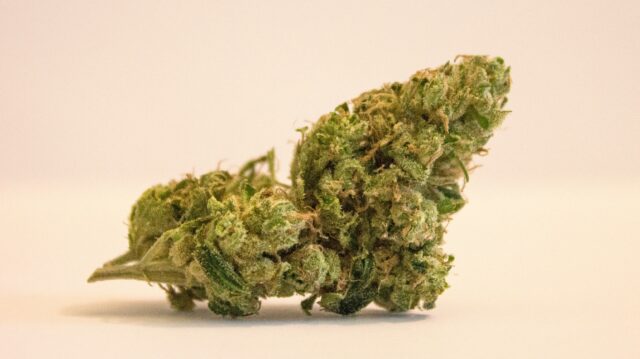Introduction
THCA flowers attract attention in natural remedies as a powerful solution for handling pain and swelling. As we delve into the middle of agricultural medicine, we discover the therapeutic possibility of this cannabinoid-rich plant. From old worlds to contemporary science, the healing residential or commercial properties of thca flowers have been revered and explored, reducing many people worldwide.
Understanding THCA Flowers
THCA, or tetrahydrocannabinolic acid, is a non-intoxicating cannabinoid uncovered in raw marijuana plants. Unlike its preferred equivalent, THC (tetrahydrocannabinol), THCA does not create psychedelic effects. Instead, it utilizes many therapeutic benefits, particularly in its raw kind.
THCA flowers, collected from marijuana plants, consist of high levels of this cannabinoid in its natural state. Via specialized removal methods, THCA can be preserved without going through decarboxylation, the procedure that transforms THCA right into THC. This preservation allows THCA flowers to preserve their clinical homes, making them a crucial source for alternate health and wellness.
Handling Pain with THCA Flowers
Discomfort is a complex and prevalent problem that affects many individuals worldwide. Whether it originates from injury, relentless problems, or neurological issues, discovering efficient relief is important. THCA flowers offer an appealing service because of their anti-inflammatory and analgesic properties.
Research suggests that THCA interacts with the endocannabinoid system (ECS), a network of receptors managing different physical functions consisting of pain assumption. By managing the ECS task, THCA can reduce discomfort without activating the adverse results associated with common discomfort medications.
Furthermore, THC’s anti-inflammatory residential or commercial properties play a vital role in enduring administration. Inflammation is normally a primary contributor to discomfort, and by reducing inflammation, THCA flowers offer all-natural relief. Whether used topically or ingested, THCA provides an all-natural alternative for people looking for lasting discomfort monitoring options.
Combatting Inflammation with THCA Flowers
Inflammation is the body’s natural response to injury or infection, yet when it becomes persistent, it can create various health concerns, including autoimmune issues, heart problems, and neurodegenerative conditions. THCA flowers utilize a complicated method to combat swelling, making them a valuable ally in alternative wellness.
Research research studies have revealed that THCA possesses powerful anti-inflammatory properties. It can control immune reactions and controlling inflammatory pathways. By targeting cytokines and other inflammatory conciliators, THCA aids in restoring stability to the body’s inflammatory procedures, decreasing the danger of chronic inflammation-related conditions.
Furthermore, THCA’s antioxidant residential properties contribute to its anti-inflammatory effects. Oxidative stress and anxiety are vital drivers of inflammation, and by counteracting cost-free radicals, THCA helps minimize mobile damage and swelling. This twin action makes THCA flowers powerful for advertising basic wellness and health.
Taking a look at the Versatility of THCA Flowers
Past discomfort management and swelling, THCA flowers supply myriad therapeutic applications. From neurological problems like epilepsy and several sclerosis to psychiatric conditions such as anxiety, anxiety, and anxiety, THCA reveals guarantee as an alternative therapy selection.
Research into THCA’s neuroprotective properties suggests that it might help alleviate the signs and symptoms of neurodegenerative problems like Alzheimer’s and Parkinson’s. By lowering oxidative anxiety, modulating natural chemical degrees, and stimulating neurogenesis, THCA utilizes expect people facing these damaging troubles.
Additionally, THCA’s anxiolytic and antidepressant outcomes make it a useful tool for emotional health monitoring. By connecting with serotonin receptors and boosting mood-regulating natural chemicals, THCA flowers provide a natural selection of common mental medicines with much less unfavorable impacts and higher effectiveness for some individuals.
The Scientific Research Behind THCA’s Neuroprotective Attributes
Study suggests that THCA has neuroprotective properties, which might help secure the brain from damage induced by various components, including swelling, oxidative stress, anxiety, and neurodegenerative problems. Research studies have additionally revealed that THCA displays anti-inflammatory, antioxidant, and antiemetic properties, all of which include its prospective neuroprotective capabilities.
Neuroinflammation and THCA: A Promising Link
Neuroinflammation, defined by swelling in the mind or nerves, plays a substantial role in the advancement of neurodegenerative conditions such as Alzheimer’s disease, Parkinson’s condition, and several sclerosis. THCA has revealed a guarantee in mitigating neuroinflammation with its interaction with the endocannabinoid system (ECS), which regulates different physical procedures of inflammation and immune reaction.
Oxidative Stress: Replying To Mobile Damages with THCA
Oxidative anxiousness, arising from a discrepancy between complimentary radicals and antioxidants in the body, adds to the aging procedure and the advancement of neurodegenerative problems. THCA’s antioxidant residential properties aid in combating cost-free radicals, lowering oxidative damage to cells, and potentially decreasing the progression of age-related cognitive decline and neurodegenerative diseases.
Looking Into THCA Flowers: Intake Techniques and Conveniences
THCA flowers, coming from raw cannabis plants, supply a natural resource for this recovery substance. While cigarette smoking or vaporizing cannabis can decarboxylate THCA right into THC, consuming raw or minimally refined cannabis, such as THCA flowers, enables the preservation of THCA in its acidic kind. This conservation is essential for accessing the complete range of THCA’s possible wellness and health advantages.
Usage techniques for THCA flowers differ, with selections including juicing, mixing right into healthy smoothie mixes, or including them into raw meals. By taking in THCA in its raw kind, individuals might experience its neuroprotective impacts without the psychedelic impacts related to THC.
The Future of THCA Research Study: Potential Applications and Effects
As the passion for cannabis-based medicine continues to expand, more research study into THCA and its possible applications is warranted. Clinical study studies analyzing out’s effectiveness of THCA in neuroprotection, neuroinflammation, and cognitive functions may provide vital understandings into its restorative possibility.
In addition, understanding the interplay between THCA and various other cannabinoids, terpenes, and phytochemicals existing in the cannabis plant may uncover teaming up results that increase its neuroprotective properties or commercial homes. This natural technique for cannabis therapies can change treatments for neurodegenerative conditions and promote mind health and health across life expectancy.
Final thought
In natural medicine, THCA flowers stand as a testament to the recovery ability of natural herb remedies. From handling pain and swelling to dealing with numerous wellness problems, THCA uses an all-natural strategy for wellness. As research study continues to introduce the myriad therapeutic advantages connected to THCA, it is positioned to reinvent the location of integrative drugs, giving hope and recovery to people worldwide. Accept nature’s presence and discover the transformative power of THCA flowers in your journey toward optimum health and wellness.

